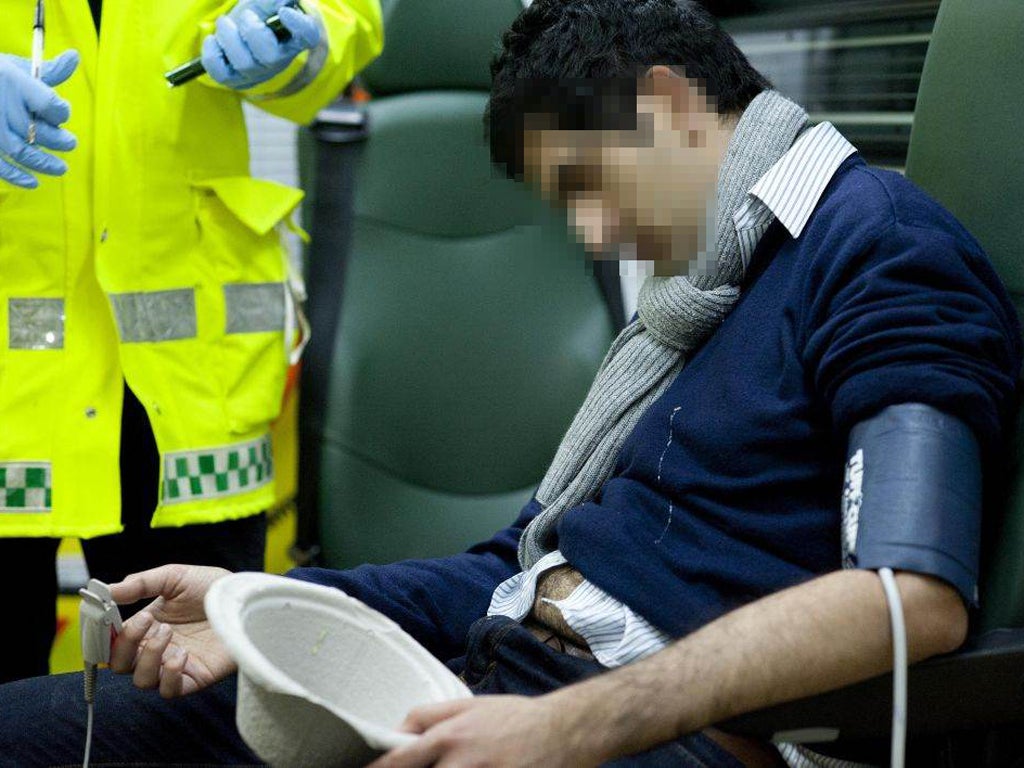Why emergency crews are braced for Mad Friday
Alcohol-related injuries units stand by as office party time hits its Christmas peak

Below the neon strip lights of offices throughout the nation, festive excitement is swelling to a crescendo, but for some of the country's most beleaguered workers, today will be the worst day of the year. It is "Mad Friday" – the peak of the Christmas period for alcohol related ambulance call-outs.
In London, Cardiff and Birmingham extra staff have been brought in and temporary alcohol related injuries units set up in popular drinking areas. Elsewhere ambulance services are preparing for the annual peak, both in injuries caused by drinking and the unpleasant consequences of just plain overindulgence.
The snow and the frozen pavements of last year combined with the booze to make it the worst on record. The London Ambulance Service saw a 23 per cent increase in call outs for drink related injuries.
On 17 December last year 6,681 people requested an ambulance – the average for a Friday night is around 4,000. The North West Ambulance Service, covering Manchester and Liverpool, received 600 extra calls between 10pm and 4am compared to the previous week.
The London Ambulance Service's "booze buses" – mobile treatment centres that operate in the West End – picked up nearly 300 "passengers" throughout the festive period last year. There is another alcohol treatment service at Liverpool Street Station, near many bars popular with City workers.
"People fall over, hit their heads, twist their ankles and so on, but mostly they're just very drunk and need looking after," said Laura Palts of the London Ambulance Service.
On Broad Street in Birmingham, a smaller city centre treatment unit has already been in action every Friday and Saturday night since the start of December. It treated 42 people last Saturday. Some were brought by ambulance, others arrived by foot from the city's bars and nightclubs only a few yards away.
"These patients don't need a trip to A&E but do require some form of treatment and the TMIU is the perfect place to be seen," said Nathan Hudson, General Manager at West Midlands Ambulance Service. "By reducing the number of patients going to local A&E departments, ambulance crews are freed up to respond to patients with life threatening conditions."
Join our commenting forum
Join thought-provoking conversations, follow other Independent readers and see their replies
Comments
Bookmark popover
Removed from bookmarks